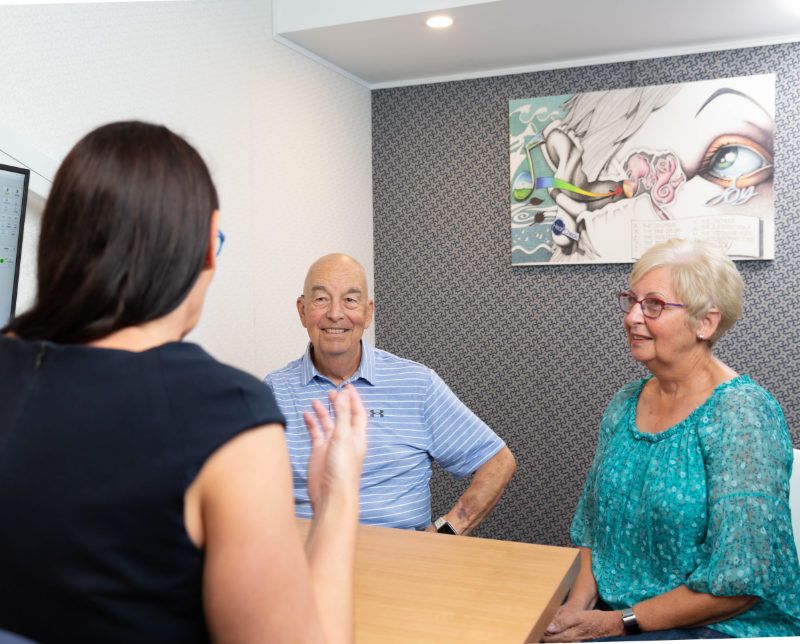Tinnitus Management
Book an AppointmentIt can be distressing
It is important to understand that while there is no universal cure it is possible to treat some underlying causes of tinnitus and to help manage the impact it has on day to day living.
Tinnitus management at Hear Check involves a comprehensive investigation of the causes and exacerbations of your tinnitus and an in-depth interview to understand the impact it is having on your life. We develop a personalised and holistic plan. This can include amplification if a hearing loss is present, sound therapy, Tinnitus Retraining Therapy (TRT), stress management, information, and counselling.
What to expect?
A Hear Check Tinnitus assessment will commence with a full diagnostic hearing assessment, with extended testing across a broader range of pitches to understand the function of your ear and auditory system.
A questionnaire called the Tinnitus Handicap Inventory helps us understand your tinnitus and its impact on you. We will measure the pitch and volume and see if the sound can be masked in the presence of other sounds – a key indicator as to whether a device known as a ‘tinnitus masker’ may be of benefit.
Counselling is a key part of our appointments and is critical to helping you understand triggers and what management strategies can be employed to significantly reduce your tinnitus experience.
A personalised and holistic management plan, based on current research, will be recommended to help you successfully manage your unique tinnitus situation.
What is Tinnitus Retraining Therapy?
Hear Check incorporates the use of Tinnitus Retraining Therapy (TRT), a form of habituation therapy, for patients where appropriate. The aim of this therapy is to effectively manage tinnitus and improve the ability to cope with it. It is also useful in the case of hyperacusis, as it helps reduce sensitivity to noise through a set of ‘noise generators’ that are worn on the ears like a hearing aid.
What strategies can I employ now to help my tinnitus?
The key strategies to help manage tinnitus include:
- Use hearing protection when working with power tools or noise generating machinery.
- Use hearing protection when attending loud venues eg: concerts, sporting events
- Turn down the volume of personal listening devices.
- Add relaxing background music to avoid complete silence, therefore providing a distraction for your ears. This is especially helpful when going to sleep.
- Manage stress with techniques such as yoga, massage or social activities that shift your focus away from the tinnitus
- Change your perception. Research has found that if you can change the way you perceive, and relate to your tinnitus, you can significantly reduce the distress it can cause.
- Try cutting back on consumption of caffeine, alcohol, nicotine and marijuana, as all have been shown to exacerbate tinnitus.
- If you also have hearing loss, investigate the option of hearing aids, as these have been proven to be highly successful in managing people’s perception of their tinnitus.
- Talk to a Hear Check audiologist to better understand tinnitus and the many options that exist to help.
Call us today on 07 5493 9001 or click here to complete our online form.


